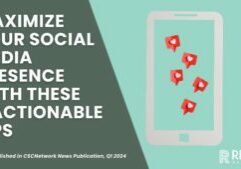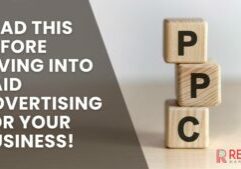Your Website Is Your Hub
A good online presence supports awareness and lead generation for your business and if you’re not online yet, you definitely should be.
At a minimum, having a professional looking website that is easy to navigate is a must. It should also have content that speaks to your visitors and represents your company to prospects, customers, and even employees.
"Does My Business Need a Website?" Um, Yes!
Especially since only 19% of buyers want to connect with a salesperson during the awareness stage when they’re first learning about the product or service. The more they can learn about you and how you can solve a problem they’re facing, the better.
As we like to put it, your website is your hub. All of your information lives there and can take folks where they need to go—like social media profiles, catalogs, or contact information—and give them a place to come back to. It’s essential to treat your website like the core of your business that it is.
Design
The layout and overall design of your website is the first thing your potential customers see, so you should put a lot of thought into it, whether that means working with our team, or developing your own. Have you ever opened up a website and the layout is so poor or not easily navigated that you just left the site altogether?
Make sure your website is inviting people in, not steering them clear of you and your business. We understand that the widgets and gadgets of WordPress or other like sites can look intimidating when first creating a website, so we suggest creating clean and simple pages when starting out.
As you go through the steps, you’ll learn more and more and can develop your site in more depth. That, or allow us to build a functional site for you.
Information
Customers are going to your website to get as much information as possible. Help them out by bolding headers, having clearly labeled sections of your website, and overall making everything easy to find. Each business’s website will be different when it comes to important information, but they should all be intuitive to use and easy to navigate.
Think about what’s important for folks to know in regard to your business, and build out your menus from there. For example, a restaurant would have hours, pricing, location, and a menu on their website, while a B2B business will have products, a news or blog section, and a contact page.
The more details you can put on your website, the fewer emails and messages about general information that can be a time suck on your work day.
Connections
“Online” is a big space in today’s day and age, and it includes your website and your social media profiles—make sure the two are consistently connected.
Since your website is your hub, you should ensure that links to your social media profiles are clearly visible and accessible on your homepage. Often times, this is how people get to your social media accounts and is a way for them to vet you and your business.
Mobile Compatibility
More often than not, people use their phones when searching the web compared to using some form of desktop. Mobile compatibility is essential to helping potential customers take you seriously.
Although your website may look beautiful on a laptop browser, it could look like chaos on mobile devices if you aren’t switched on to mobile compatibility. When creating your website, make sure you keep both sides in mind—we’re here to help if you have any questions.
Websites can feel scary, we get that. But a big part of our job here at RED66 is to build beautiful, functional websites that help you address your clients and customers, providing them with a roadmap to everything they need to know about you.
If you’re interested in seeing how we can create a website for you, contact us today!










